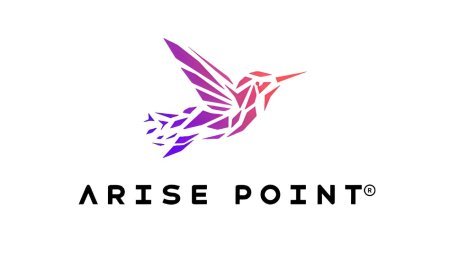How Businesses Can Use ERP to Stay GST-Compliant

Tax compliance has become one of the biggest challenges for businesses in India, especially after the introduction of GST and e-invoicing regulations. Keeping track of taxes, generating accurate reports, and ensuring timely filing is no longer just about good accounting—it’s a legal necessity. For many businesses, managing tax compliance manually is time-consuming and error-prone, leading to penalties and unnecessary financial stress.
This is why ERP software companies in India are playing a crucial role in helping businesses simplify compliance. A well-implemented ERP system automates GST calculations, ensures e-invoicing accuracy, and makes tax reporting effortless. Instead of scrambling to meet deadlines, businesses using ERP can focus on their core operations while staying compliant.
Why GST Made ERP a Necessity, Not a Luxury
When GST was introduced in 2017, it replaced multiple indirect taxes with a unified tax structure. While this simplified taxation in theory, it also brought new compliance challenges. Businesses had to:
-
Track multiple GST rates for different products and services.
-
Generate e-invoices in a government-approved format.
-
Submit regular GST returns on time to avoid penalties.
-
Maintain proper documentation for audits and tax inspections.
For businesses handling large volumes of transactions, managing tax compliance manually became nearly impossible. Errors in GST filings could result in hefty fines, delayed refunds, or even legal consequences. That’s why companies turned to ERP software companies in India to implement solutions that could handle taxation automatically, reducing manual work and minimizing risk.
How ERP Simplifies Compliance and Reduces Financial Risks
A well-implemented ERP system helps businesses maintain compliance without the headache of manual calculations or last-minute filing errors. Here’s how ERP makes GST compliance easier:
-
Automated GST Calculation – The system applies the correct GST rate based on product type, location, and applicable tax rules, eliminating manual errors.
-
E-Invoice Generation – Generates invoices in the required format, reducing rejections from the tax department and avoiding penalties.
-
Real-Time Tax Tracking – Provides up-to-date tax records, ensuring businesses never miss a filing deadline.
-
Accurate Financial Reports – Automates GST returns and tax filings, making audits and compliance effortless.
-
Seamless Integration with GSTN – Ensures direct submission of returns, avoiding errors and improving accuracy.
How ERP Software Companies in India Are Helping Businesses Stay Compliant
As compliance becomes more complex, ERP software companies in India are focusing on making tax management easier for businesses. Many SAP B1 partners, including Praxis Info Solutions, offer GST-ready ERP solutions that ensure businesses remain compliant without unnecessary stress.
Key Features of a GST-Compliant ERP System:
-
Automated GST Updates – The system is regularly updated to reflect changes in tax laws, so businesses don’t have to manually adjust tax rates.
-
E-Invoicing Compliance – Ensures invoices are formatted according to GST rules, reducing rejection rates.
-
Integration with GSTN (Goods and Services Tax Network) – Enables businesses to directly submit GST returns without third-party tools.
-
Error-Free Tax Filings – Eliminates human errors in tax calculations and submissions.
-
Detailed Audit Trails – Maintains accurate tax records, making compliance audits stress-free.
Why Choosing the Right ERP Partner Matters
While ERP can significantly improve tax compliance, choosing the right ERP software provider is just as important as choosing the software itself. Not all ERP systems are built with tax compliance in mind, and not all providers understand the complexities of GST and e-invoicing.
Businesses that partner with experienced SAP B1 partners like Praxis Info Solutions benefit from a seamless ERP implementation that takes compliance requirements into account. A reliable SAP Business One service provider ensures that:
-
The ERP system is set up correctly for GST and e-invoicing.
-
Employees receive proper training on tax compliance features.
-
The system remains up to date with the latest tax regulations.
-
Businesses receive ongoing support for troubleshooting and system improvements.
Conclusion
With increasing government regulations, ERP is no longer an optional tool—it’s a necessity for businesses that want to stay compliant with GST and e-invoicing rules. Manually handling tax calculations and filings is not only time-consuming but also leaves businesses open to errors and penalties.
An ERP system designed for tax compliance saves businesses time, reduces financial risk, and ensures GST filings are accurate and timely. Working with a reliable ERP software company in India, such as Praxis Info Solutions, helps businesses implement the right ERP system for their needs.
By choosing an SAP B1 partner that understands GST compliance, businesses can simplify tax management, avoid penalties, and focus on what really matters—growing their business.
What's Your Reaction?


































































